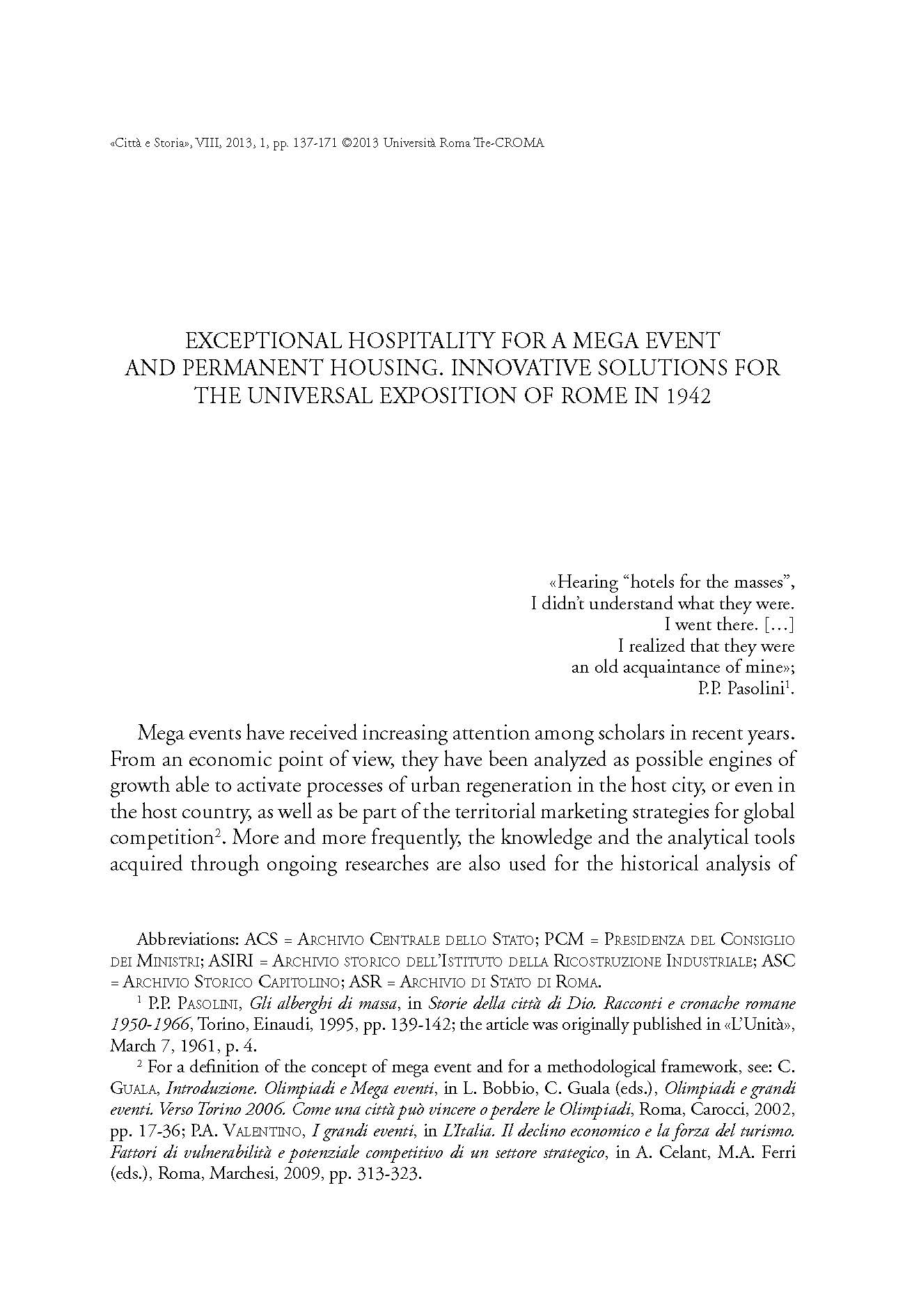Exceptional Hospitality for a Mega Event and Permanent Housing. Innovative Solutions for the Universal Exposition of Rome in 1942
6,00 €
The celebration of the twentieth anniversary of the “Fascist revolution” with a Universal Exhibition to be held in Rome in 1942 involved significant organizational problems; among these, there was also the need to find effective solutions to accommodate the expected huge visitors flows to Rome for the event. The State allocated financial subsidies to encourage the construction of new hotels and the renovation of existing ones; but it was necessary to meet the extraordinary demand of accommodation during the Exposition without permanently increasing the offer of hospitality, considered numerically appropriate to the ordinary demand, although it needed to be qualitatively improved. The innovative solution consisted of the so-called hotels for the masses; these were large buildings to be used as temporary visitor accommodation during the Exposition, which would then be converted into permanent residential buildings at the end of the event, partially relieving the housing crisis in Rome. The war prevented the Exposition, but the events relating to the hotels for the masses – analyzed in this article using unpublished archival documents – left an important legacy: not just some building complexes which actually expanded the supply of public housing, but also a new type of planning approach to the problems related to a mega event.
The celebration of the twentieth anniversary of the “Fascist revolution” with a Universal Exhibition to be held in Rome in 1942 involved significant organizational problems; among these, there was also the need to find effective solutions to accommodate the expected huge visitors flows to Rome for the event. The State allocated financial subsidies to encourage the construction of new hotels and the renovation of existing ones; but it was necessary to meet the extraordinary demand of accommodation during the Exposition without permanently increasing the offer of hospitality, considered numerically appropriate to the ordinary demand, although it needed to be qualitatively improved. The innovative solution consisted of the so-called hotels for the masses; these were large buildings to be used as temporary visitor accommodation during the Exposition, which would then be converted into permanent residential buildings at the end of the event, partially relieving the housing crisis in Rome. The war prevented the Exposition, but the events relating to the hotels for the masses – analyzed in this article using unpublished archival documents – left an important legacy: not just some building complexes which actually expanded the supply of public housing, but also a new type of planning approach to the problems related to a mega event.

